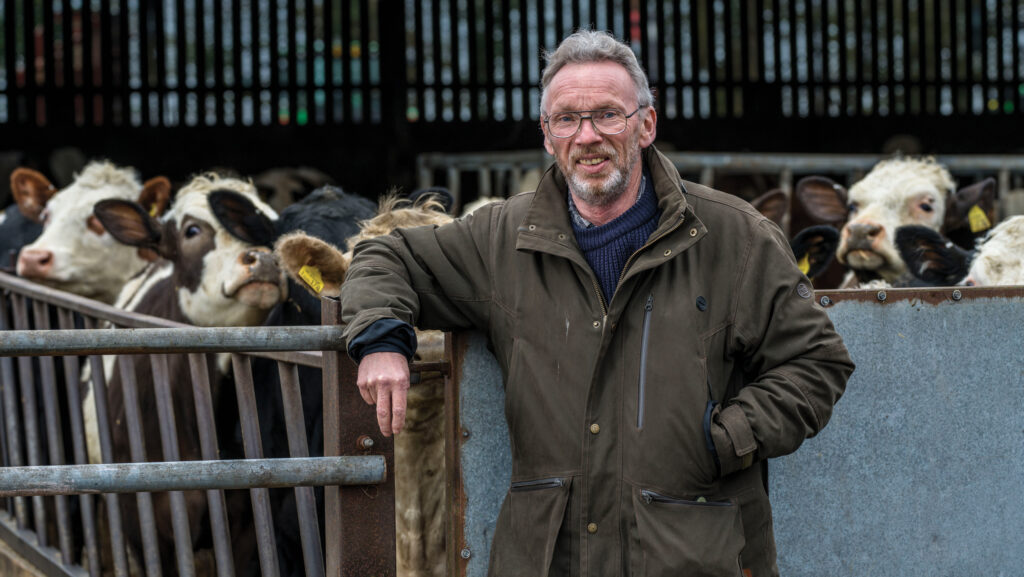How Focus Farms are helping royal estate on regen journey
 Robin Fricker © The Duchy of Cornwall
Robin Fricker © The Duchy of Cornwall The Duchy of Cornwall has a long history of trying to do right by nature, with both the current Duke (Prince William) and his predecessor (King Charles) renowned for their environmental enthusiasm.
For example, in 2018 the Duchy estate established a “natural resources management plan”, to identify priority habitats and areas in need of protection and enhancement.
And in 2022, it set itself a target to become “net zero” in carbon emissions by the end of 2032.
See also: Find all our regenerative farming content in one place
Given this recent history, it is little surprise to find the estate has been a ready-adopter of regenerative farming, with Prince William attending the Groundswell event last summer.
Focus farms
As part of this regenerative journey, the Duchy estate has its own Future Farming programme, spearheaded by seven Focus Farms.
“The programme was created primarily to accelerate the Duchy’s net zero ambitions, but also to achieve its ‘nature rich’ objectives,” explains head of Future Farming, Heather Webb.
“The Focus Farms help us understand where our best influence can lie, test a lot of different practices and technologies, plus they’re opening their gates so others farmers can learn from them.”
The seven farms that make up the group were carefully selected to represent the different geographies that the estate encompasses.
“We wanted to get good representation, because our acreage stretches from Herefordshire to the Isles of Scilly. We have lots of different landscapes with a lot of different farming systems,” says Ms Webb.
The upshot is that the seven farms consist of two upland farms on Dartmoor, four other lowland farms, and an organic dairy farm.
Work areas
Deciding who does what in terms of environmental delivery is very much a collaborative exercise, says Ms Webb.
“We sit down with the farmers to understand their businesses and what their transition pathway looks like, because it is different for every single farm,” she explains.
The Duchy estate also has five in-house advisers to help, including trained ecologists, catchment and soil management experts, and land agents.
“They might suggest projects that can improve the farm’s environmental performance, or point to other farms they could visit to look at things that have worked well elsewhere, or identify different technologies that are being used,” explains Ms Webb.
“Our advisers can also help them navigate the funding landscape, pointing out support that might be available in their local region.”
Setting a baseline is another crucial part of the Future Farming project, so progress on carbon emissions can be monitored.
“We collect lots of other data as well, including bird surveys to evidence habitat and biodiversity improvements, and we regularly collect soil samples to check for organic matter,” says Ms Webb.
Incentives
The seven Focus Farms are clearly self-motivated in terms of regenerative techniques and environmental delivery.
But they are also businesses, so the estate is happy to provide incentives, both financial and non-financial.
“Last year the Duchy invested £2.8m across our net zero, farming and woodlands programmes,” says Ms Webb.
“That could cover things like large capital infrastructure projects, contributions towards new technology, or funding to increase the knowledge and skills of our farmers.”
The estate has also helped fund nature-based projects on farm, such as the creation of new hedgerows, woodland planting, agroforestry, fencing off watercourses, and pond restoration.
It also signposts its farmers towards Defra’s Environmental Land Management schemes and grants.
But while public funds are crucial to farm viability, Ms Webb is convinced that regenerative farming is fundamental to long-term sustainability and success.
“The benefit of a net zero/regenerative approach is that it really focuses the mind on productivity and efficiency, and that can generate cost savings, potentially benefiting the bottom line,” she says.
Regenerative farming caught on camera
Some of the work the Focus Farms are engaged in is highlighted in a new film from the Duchy of Cornwall called Seven Seeds.
One of the farms profiled is Park Corner Farm in Wiltshire – a 120ha beef, arable and contracting enterprise run by Robin Fricker.
The film shows how peas and barley are companion cropped to eliminate the need for artificial fertiliser while boosting biodiversity.
New ponds and wetland features have also been created to slow water flow and improve habitat.
Other featured farmers include Henry-James Gay from Broadfield Farm in Gloucestershire, who has slashed carbon emissions by substituting hydrogenated vegetable oil for diesel, and Philip Gorringe from Lower Blakemere Farm, Herefordshire, who has cut cultivations to raise soil organic matter.
